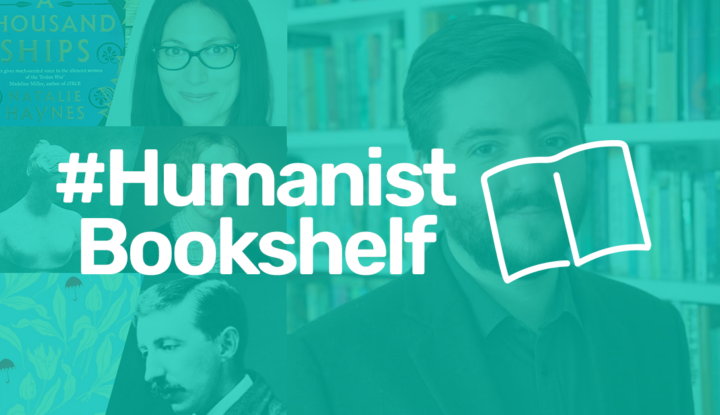As part of Humanists UK’s #HumanistsBookshelf social media campaign, I wrote a listicle on my top three favourite humanist books.
Middlemarch by George Eliot
George Eliot’s humanist philosophy runs as an unbreakable thread through her every novel but nowhere is this more evident than in the intricate tapestry of Middlemarch. You understand and empathise with every one of her characters even though they are so different from each other. The broadmindedness this helps develop in the sensitive reader is a priceless gift. Middlemarch is also a good humanist pick because the entire plot is underpinned by the theme of human interconnectedness and the idea that the episodes of this particular tale are just one slice of the neverending human story.
Howards End by E M Forster
One mid-twentieth-century critic observed that, if Bertrand Russell was the head of the humanist movement, then E M Forster was its heart. All his novels exemplify his open-minded and humanist view of life with a focus on human relationships and the need for tolerance, sympathy, and love but Howards End is my favourite for a humanist bookshelf. Along with A Passage to India, it has Forster’s most memorable characters, which reward any number of re-readings. But it is also the novel where we find that immortal phrase “Only Connect!”, not just an exhortation to social interaction, but for each of us to bridge the spheres of reason and emotion within ourselves. The struggle and imperative to make these connections is of enduring humanist interest.
A Thousand Ships by Natalie Haynes
I’ve chosen this book by Humanists UK patron (and fellow classicist!) Natalie Haynes first and foremost because I think it is the best recent story-writing by a humanist that I have read. Its retelling of the Trojan War through an exclusively female lens gives a voice to women, girls, and goddesses. I agree completely with Natalie’s conviction that ‘stories probably have the power to tell us everything about the human condition’ and the myths of the Greeks are certainly of unending relevance in understanding ourselves better. This novel, and Natalie’s other work re-framing myths from a new perspective, also increases our understanding of the different ways in which a story can be told – something which is of special importance for humanists because it develops our recognition and acceptance of the diversity of human experience.
You can read the original article here.
